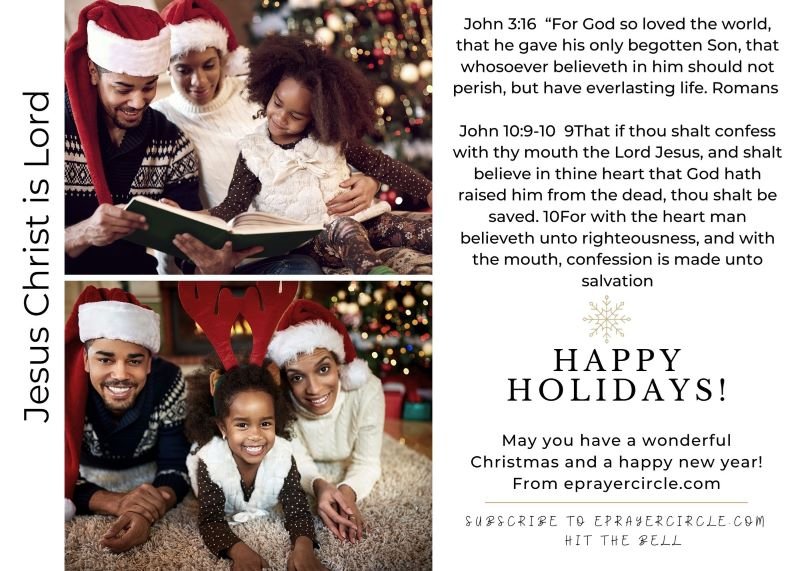Defending Christmas: Sol Invictus, or the “Unconquered Sun Pagen Holiday vs Jesus Christ December 25th Christmas Day
Translate this post into over 100 languages. Chose language from drop-down menu from the Google Translate Menu Bar on the Home Page
Keywords: Christmas celebration in Christianity, Luke 19:40 KJV interpretation, December 25th historical significance, Sunday worship across time zones, Calendar systems in biblical times, Debunking December 25th pagan myth, Christian unity and Christmas, eprayer circle, eprayercircle, jesusislord, freebiblelessons
Christians do not celebrate Jesus’ Birthday, We celebrate the Birth of Jesus.
Introduction: Discover the biblical roots of the Christmas celebration and the myths surrounding its date in comparison to pagen holidays. We explore the call for Christian assembly in Luke 19:40 (KJV), emphasizing the importance of communal worship. True research is revealed into the choice of December 25th and its relation to pagan festivals, addressing the misconception head-on. Learn about the flexibility of Sunday worship and the observance of other Christian religious holidays across time zones and the diverse calendar systems during Jesus’ time. By the end, you’ll have an understanding of why Christians can confidently embrace the joyous celebration of Christmas and Jesus Christ.

alt tag: #merry Christmas
Christmas assembly and worship in the open is a requirement
Christmas, far from being a mere festive occasion, holds deep roots in the biblical call for Christian assembly and worship. In Luke 19:40, Jesus responds to the Pharisees who were urging him to rebuke his disciples for praising him openly.
Jesus emphasizes the inevitability of praise, stating that even if the disciples were silent, the very stones would cry out in recognition of his divine nature.
This incident promotes the significance of worship and praise in Christian theology, emphasizing the idea that acknowledgment of Jesus as the Messiah is inherent and unavoidable. In Luke 19:40 (KJV), we find a poignant reminder of the importance of communal worship— “And he answered and said unto them, I tell you that, if these should hold their peace, the stones would immediately cry out.”
This verse underscores the significance of gathering as believers to worship the Creator, a theme that resonates with the essence of Christmas.

alt tag: #merry christmas
Beyond the December Dilemma:
Choosing December 25th as the date for Christmas might raise eyebrows. Some see a connection to the Roman festival of Sol Invictus, the “Unconquered Sun.” But here’s the truth: celebrating on a specific day isn’t a biblical requirement.
Think of it like choosing a birthday party date. You pick a day that works for everyone, even if it doesn’t perfectly match the exact moment of birth. Similarly, December 25th became a rallying point for Christians to celebrate Jesus’ arrival, overshadowing any earlier pagan associations.
Addressing the controversial date of December 25th, it’s crucial to note that celebrating on a specific day is not a mandate in Christianity. However, the selection of December 25th is often questioned due to its alignment with the Roman festival of Sol Invictus. The Roman festival of Sol Invictus, or the “Unconquered Sun,” was a celebration of the idolatry sun god Sol.
It was established by the Roman Emperor Aurelian on December 25th, AD 274 using the Julian calendar. Sol Invictus was intended to honor the sun as the source of light and life and to mark the winter solstice when the days begin to lengthen again. The Gregorian calendar used by the US and most civilian countries today, introduced in 1582 to reform the Julian calendar, is more accurate in aligning with the solar year.
While there is no specific year associated with the “creation” of Christmas”, historians generally place the recognition of December 25th as the date for Christ’s birth in the year 336 AD created by the Catholic Church. It is often thought among biblical scholars, that the Christmas date was to eliminate or be an alternative to the pagan holiday. It is important to note that the date of December 25th for Sol date is not the same December 25 date used today to celebrate Christmas in most civilian worlds that use the Gregorian calendar.
The ancient Roman festival of Sol Invictus is not widely celebrated today in its historical form. It was largely eliminated by Christianity, particularly with the establishment of December 25th as the date for celebrating the birth of Jesus Christ.
“I asked Chat GPT to give the day of the week of Christmas, December 25, using the Julian Calendar and the day using the Gregorian calendar and the answer is below:
So, if December 25th, 2023, falls on a Monday in the Gregorian calendar, it would fall on a Sunday in the Julian calendar. The difference is due to the extra leap day added in the Julian calendar that is not present in the Gregorian calendar for non-century years not divisible by 4.
Keep in mind that this is a simplified explanation, and the Julian calendar was modified when transitioning to the Gregorian calendar in 1582. The actual adjustment involved skipping several days to bring the calendar back in line with the solar year.”
If any contemporary Sol celebrations do occur, they are likely part of niche or reconstructed pagan practices rather than mainstream cultural or religious observances. It’s important to note that there is no widely recognized or standardized contemporary celebration of Sol Invictus comparable to the widespread observance of Christmas.
While this historical connection exists, it’s vital to recognize that the essence of Christmas transcends such associations. December 25th is not inherently pagan; it’s a chosen date to collectively commemorate the birth of Jesus Christ.

alt tag: #Merry Christmas
Time Zones and Calendars: A Tapestry of Faith:
Imagine Christians across the globe, from bustling New York to sun-drenched Australia, all celebrating Christmas on the same day. That’s the beauty of faith! While the clock might say different times, the spirit of worship unites us. And just like different calendars existed during Jesus’ time and biblical history, our modern Gregorian calendar doesn’t diminish the historical significance of Christmas. It simply offers a convenient framework for worldwide celebration.
The Light Beyond the Sun God:
Some might see December 25th as a “pagan Sun God holiday,” but that’s like mistaking the moon for the sun. True, the Roman festival was there, but its light pales compared to the radiant glow of Jesus. He is the true light of the world, the one who brings us out of darkness and into his everlasting love. Celebrating Christmas isn’t about honoring a forgotten sun god; it’s about basking in the warmth of Jesus’ presence.
John 8:12 KJV “Then spake Jesus again unto them, saying, I am the light of the world: he that followeth me shall not walk in darkness, but shall have the light of life.”
Dispelling the myth that December 25th is a “Pagan Sun God Holiday” is imperative
Historical evidence suggests that the association of this date with pagan celebrations is not universally supported. The focus of Christmas remains on the joyous celebration of the birth of Jesus, and any historical associations are secondary to the spiritual significance attributed to this festive season.
The days are different compared to the calendar used then and the calendar used today. Christmas was created by the Catholic Church to celebrate the birth of Jesus Christ, offer an alternative, or eliminate the pagan celebration.
Therefore, There is nothing pagan about observing and celebrating our Lord and Savior Jesus Christ at any time. In addition, there is nothing pagan about Jesus Christ. Jesus is the light of the world and the True Sun God. He delivers us from the darkness into the light.
So, let’s dispel the myth of December 25th or any Christian religious celebration about Jesus Christ being a pagan holiday. While historical connections exist, they don’t define the true meaning of Christmas or any other holiday, including Easter.
It’s a season to rejoice in the birth of our Savior, to come together in shared faith, and to spread the light of Christ’s love. Remember, Jesus isn’t confined to a calendar page; he lives in our hearts and shines through our actions.
So, let every day be a celebration of his birth, a testament to our unwavering faith, and a beacon of hope for the world.

alt tag: #Merry Christmas
Scriptures that explain Jesus is the Creator and the Light of the World.
The scriptures below explain that Jesus is the Word that became flesh, He created the world. He is the light of the world. In heaven, there is no sun nor night, He is the light that gives light to heaven.
Therefore, theoretically, Jesus the Creator is the REAL Sun God. John 1:10K JV “He was in the world, and the world was made by him, and the world knew him not.”
John 9:5 KJV “As long as I am in the world, I am the light of the world.”
14And the Word was made flesh and dwelt among us, (and we beheld his glory, the glory as of the only begotten of the Father,) full of grace and truth.
Revelation 22:4-8 KJV 4And they shall see his face; and his name shall be in their foreheads. 5And there shall be no night there (heaven); and they need no candle, neither light of the sun; for the Lord God giveth them light: and they shall reign forever and ever.
6And he said unto me, These sayings are faithful and true: and the Lord God of the holy prophets sent his angel to shew unto his servants the things which must shortly be done. 7Behold, I come quickly: blessed is he that keepeth the sayings of the prophecy of this book.
8And I John saw these things, and heard them. And when I had heard and seen, I fell down to worship before the feet of the angel which showed me these things.

alt tag: #merry christmas jesus
Navigating time zones in observing Christian holidays and celebrations,
Christians observe Sunday worship at different hours globally. The essence of worship remains paramount, emphasizing unity in faith rather than adherence to a specific clock time. This adaptability across time zones underscores the flexibility and universality of the Christian faith.
In exploring the calendar systems during Jesus’ time, we encounter the use of various calendars, such as the Hebrew calendar, the Julian calendar, and today, the Gregorian calendar. This diversity adds complexity to pinpointing an exact date for historical events.
Consequently, observations of religious celebrations on our modern calendar (Gregorian calendar) may not precisely align with historical chronology, further diminishing the notion of a direct connection to pagan festivities, especially Easter and the observance of the Sabbath.
The United States primarily uses the Gregorian calendar based on the solar year, which is the most widely used calendar system globally. On the other hand, the Hebrew calendar is a lunisolar calendar used in Jewish traditions.
It is based on both the lunar cycle and the solar year. The Julian calendar is based on and is the calendar the Pagen Sol holiday was based on. As written above, the Julian calendar is a day or more behind the Gregorian Calendar. The Gregorian Calendar was written to make the Julian calendar accurate.
The Gregorian calendar has a fixed number of days in each month and a consistent year length. A year is 365.2425 days long, more closely aligned with the solar year. Leap years for years divisible by 4, except for century years not divisible by 400 (e.g., 1700, 1800).
The Hebrew calendar used in Jesus’ time can have varying month lengths and occasional leap months to keep it in harmony with the solar year. It is a lunisolar calendar based on both the moon’s cycle and the solar year. Months vary in length, and leap months are added periodically.
The Julian calendar is 365.25 days long, leading to a gradual drift from the solar year. Leap year every 4 years.
In conclusion, Christians have a solid foundation for celebrating Christmas, rooted in biblical calls for assembly and worship. The chosen date of December 25th, while historically connected to other festivities, is a testament to the unity of believers in commemorating the birth of Jesus. As we navigate time zones and historical calendars, it becomes evident that Christmas transcends cultural and temporal boundaries, uniting Christians worldwide in the spirit of joy and worship.
Colossians 1:13KJV In whom we have redemption through his blood, even the forgiveness of sins: 15Who is the image of the invisible God, the firstborn of every creature: 16For by him were all things created, that are in heaven, and that are in earth, visible and invisible, whether they be thrones, or dominions, or principalities, or powers: all things were created by him, and for him:
Disclosure: Below graphics are not affiliated links. There is nothing to buy. Hit Gospel Playlist Click Hear –
[mailerlite_form form_id=1]
PRAYER CIRCLE: If you want the Prayer Circle to pray for you, please fill out the form: https://eprayercircle.com/index.php/prayer-request/

alt tag: Jesus Christ – the Forgiveness of Sins
CALL TO SALVATION:
John 3:16 “For God so loved the world, that he gave his only begotten Son, that whosoever believeth in him should not perish, but have everlasting life.”
Romans 10:9-10 9That if thou shalt confess with thy mouth the Lord Jesus, and shalt believe in your heart that God hath raised him from the dead, thou shalt be saved. 10For with the heart man believeth unto righteousness, and with the mouth, confession is made unto salvation.
John 3:5-6 5Jesus answered, Verily, verily, I say unto thee, Except a man be born of water and of the Spirit, he cannot enter into the kingdom of God. 6 That which is born of the flesh is flesh, and that which is born of the Spirit is the Spirit.





